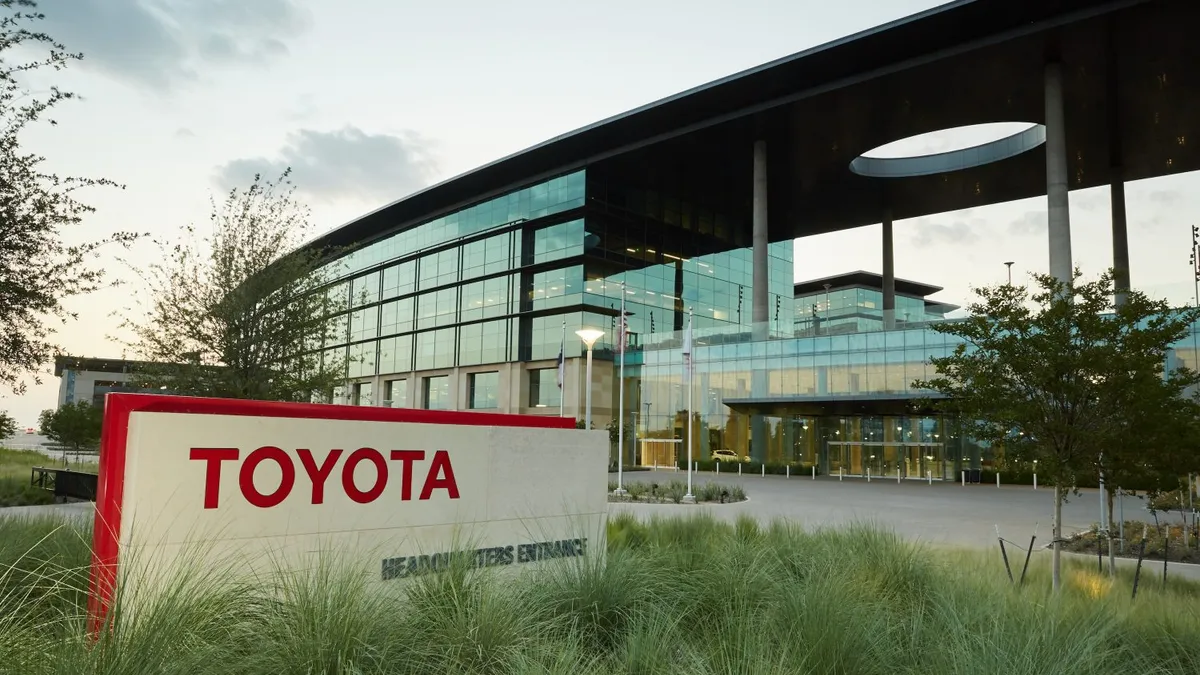Another helping of green bean casserole or sage and cranberry biscuits sounds so good, we dish up seconds while the original serving is still on the plate.
Then, the regret. Overindulgence leads to an uneasy feeling of fullness.
Similar to holiday feasts, technology feasts can end in overconsumption.
CIO Dive asked six technology executives what they are full of this year. Here is what they wrote back:
1. Jamie Head, chief information officer of Ocean Spray:
Companies are too comfortable with overusing the term "digital transformation," according to Head. "I like to ask people to rephrase a sentence that contains the word 'digital' with a capability that describes exactly where technology and process can make a breakthrough."
Saying "we're fully agile" when "having an internal DevOps team running agile projects is only 50% of the opportunity," he said. "Creating change throughout an entire organization to be agile across design, process and execution is the place to unlock real speed and competitive advantage."
Finally, blockchain is "not a technology that provides overnight transformation; it's a long term technology that will eventually bleed into processes and vendors landscapes organically once regulation and standards prevail, with the exception of banking."
2. Julie Averill, EVP and chief technology officer at Lululemon:
"I'm tired of email!" she told CIO Dive — in an email. Email in many ways has already peaked in workplace productivity. It's actually beginning to hinder employee efficiency and work management.
As the communication market continues to streamline platforms and automation steps in, email's days could be limited. "There are better communication systems out there and I'm looking forward to the day when email goes away entirely."
3. Kevin Ubert, Vice President of Information Technology, Vitamix:
The overuse of artificial intelligence allows people to "interpret it as a human replacement," said Ubert.
"That may be true in some limited cases, but I think of it as a tool for 'augmented intelligence', which is the application/deployment of today's artificial intelligence in a supportive role to enhance a human's intelligence."
By design, AI can alleviate humans of mundane tasks therefore freeing them to pursue challenges that drive more value, he said.
"It could also be used to identify potential solutions to or root cause of issues involving large amounts of data, something either too complex or too time consuming for a human to do effectively (if at all), thus reducing or eliminating the investigative time and putting the human into a problem solving mode."
4. Gee Rittenhouse, SVP and GM of Security Business at Cisco:
"I'm tired of hearing about security as something independent, whether it's a technology or an offer," said Rittenhouse.
"Customers want their businesses to be secure. They don't want to have security bolted on after." Security has to be a priority at all times for companies. But all too often "the industry's response to a particular threat is to add security on" instead of "building security in," he said.
There's a tendency to separate security from other foundational business entities like users, data and communications, he said but "customers need all of these pieces to be secure versus tacking on a separate piece called security."
5. Arthur Orduna, EVP and chief innovation officer at Avis Budget Group:
"A lot of it has to do with my background, internet of things," he said. "My personal pet peeve, when I was at ADT [Security Services], our focus was really connected home … it coincided suddenly with 'hey, internet of things is this thing and it's hot,' " around 2012.
Orduna, with a background in embedded systems, knew the hype on IoT was an exaggeration. "It's not not new, it's a natural evolution of what's already been developed, it's just that now you add the ubiquitousness of both broadband and higher level applications and usage on the internet."
Embedded systems were already communicating with each other in a "network of things for the last several decades," IoT is just what happened next.
6. Colin Earl, CEO of Agiloft:
"I am sick of hearing about 'low code' systems. It is just marketing speak for 'you cannot configure our system without manual coding,' " according to Earl.
"The result is generally a high cost, bloated, system that is full of bugs and security holes. I'm sick of big software companies convincing businesses that enterprise software costs millions of dollars and takes a year or more and an army of consultants to implement."
Companies that use "no-code platforms" the ability to better tailor and scale software for their needs for cheaper, he said. The "the customer is not left dependent on the vendor to maintain a tangle of black box manual code."






















